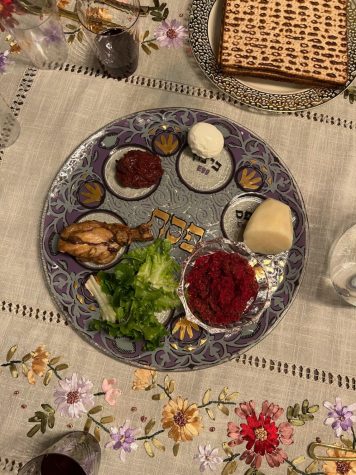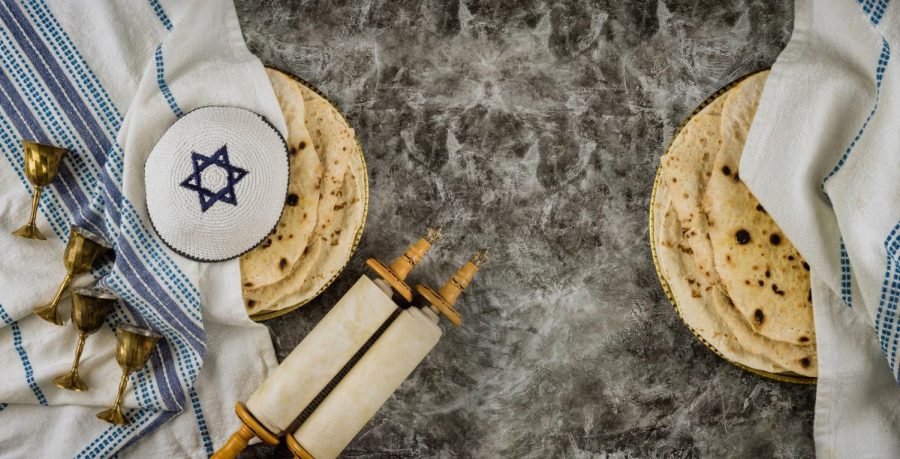What is Passover?
The agreement you made when you had children, that spirit of cooperation to allow them to experience important aspects of both parentsтАЩ lives, has not changed. That would mean, out of the spirit of cooperation, dad would allow the children to come over in the middle of the week for Passover, writes Dr. Jann Blackstone. (Dreamstime/TNS)
April 13, 2023
This week is holy for many religions: While Christians celebrated Easter earlier this week and Muslims are observing Ramadan all month, the Jews are currently celebrating Passover.┬а
What Is Passover?
PassoverтАУor Pesach in HebrewтАУcelebrates the IsraelitesтАЩ exodus from Egypt where they were enslaved by the Pharaoh for nearly 400 years. After decades of slavery in Egypt suffered by the Israelites, God sent Moses to the Pharaoh with a message to тАЬlet my people goтАЭ. When the Pharaoh did not heed MosesтАЩ command, God created the ten plagues and brought them down on the Egyptians. From water turning to blood and locusts killing all crops, the worst of the plagues was the death of the EgyptiansтАЩ first born child. In fact, this is where the name тАЬPesachтАЭ comes from, literally meaning тАЬpassed overтАЭ because God passed over the homes of the Jewish people when killing the firstborns of the Egyptians. Like most Jewish holidays, it is a celebration of the strength of the Jewish people.
How is Passover Celebrated?

Out of all the Jewish holidays, Passover is one of the most symbolic holidays in the Jewish calendar. The holiday is celebrated with the seder: a dinner in which the story of Passover is told which takes place the first two nights of the holiday. On a traditional seder plate, there are six items, all which have symbolic meanings: shank bone, egg, two types of bitter herbs, lettuce, and haroset (a sweet mixture of apples and nuts). Most importantly, matzah is present at every seder.┬а
Matzah is an unleavened flatbread which can be compared to a cracker in its consistency. For the eight days in which Passover is celebrated, Jews do not eat any leavened grains (wheat, barley, oats, etc.) because when the Jewish people escaped from Egypt, their bread did not have enough time to rise.
Though the seder has been around for hundreds of years, in recent years new traditions have surfaced for what families include on their seder plates. Recent additions include an orange to symbolize the group of marginalized Jews such as women and members of the LGBTQ+ community.
The seder is meant for its guests to relive the experience of being liberated from Egypt. For example, dipping bitter herbs in saltwater is meant to symbolize the tears of the Jewish slaves. During the seder, the Haggadah is read which tells the story of Passover and outlines the order in which the seder takes place.┬а
In Israel, Passover is celebrated for seven days but everywhere else in the world, the holiday is celebrated for eight days. This year, Passover is celebrated from April 5 to April 13.┬а
What is the Significance of Passover?
Out of all the Jewish holidays, Passover is one of the most symbolic holidays on the Jewish calendar. Passover finds its significance in many forms, a prevalent one being that it serves as a powerful learning opportunity for Jewish youth.
тАЬThe Passover meals were also super significant because they taught me about my past and religious history,тАЭ said junior Binyomin Finkelman. тАЬWeтАЩve been doing seders since the year I was born and Passover was always a holiday of family and bringing us togetherтАЭ he said.
For other Jewish students like senior Salomon Bibas, the significance of Passover lies in its emphasis on remembrance and curiosity.
тАЬMy key takeaways from Passover are to never forget the story of the Jews in Egypt and the hardships the Israelites faced as well as realizing the importance of passing it on to younger generations,тАЭ said Bibas.┬а
Bibas also mentioned that one of his favorite aspects of the holiday was that youтАЩre encouraged to ask questions. Throughout the seder, everyone (especially younger guests) is encouraged to ask any and all the questions they might have. The reason being is that when the Jews were enslaved in Egypt, they were not allowed to question authority or voice their own thoughts. Therefore, to celebrate the ideals of freedom, questions make up a key aspect of most seders.


















